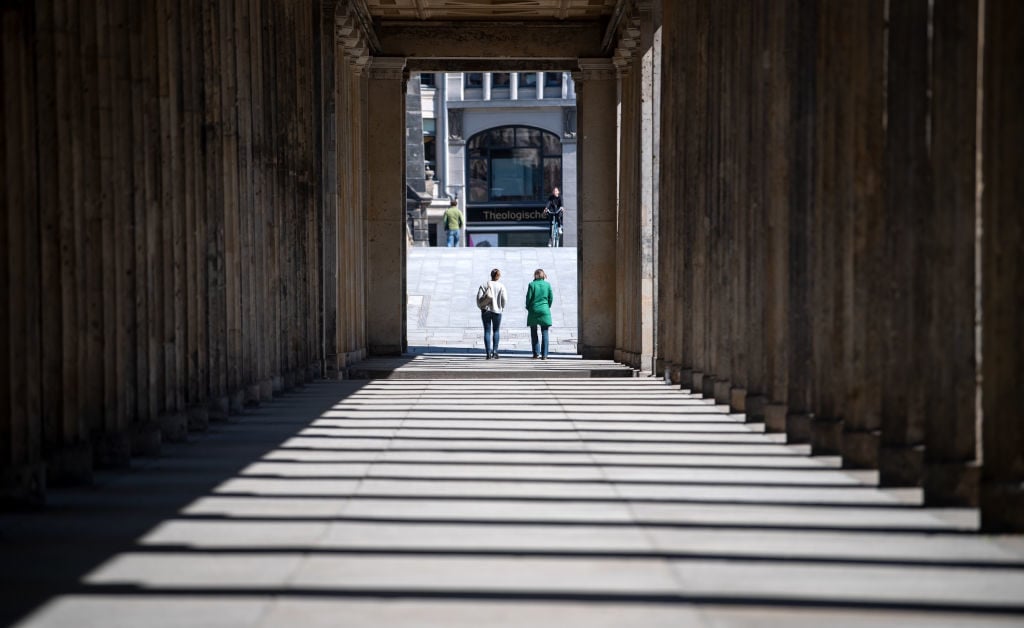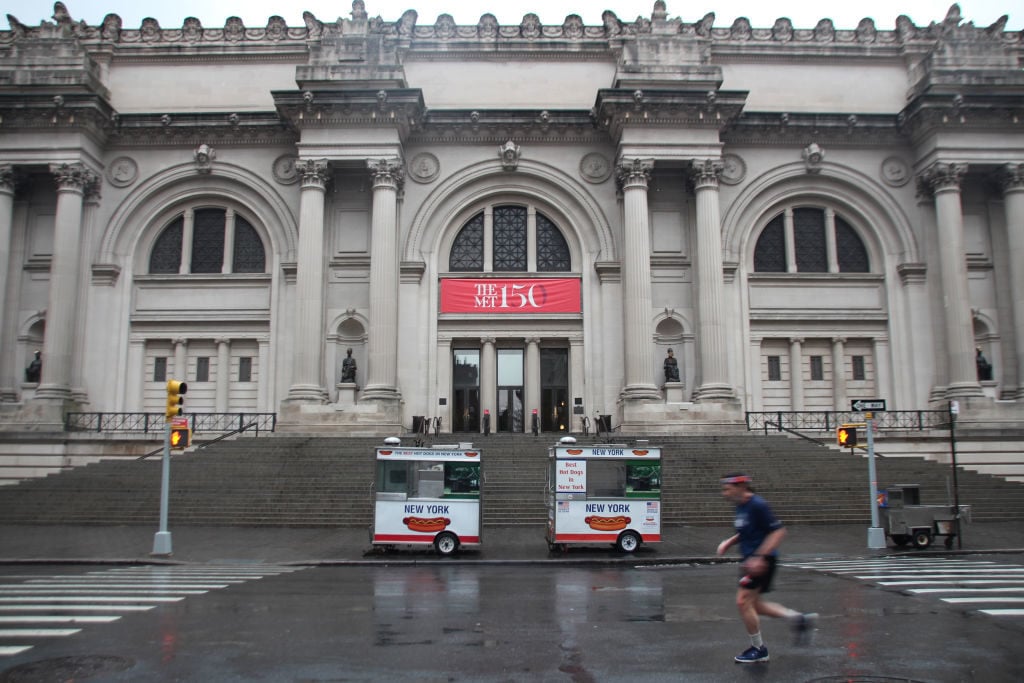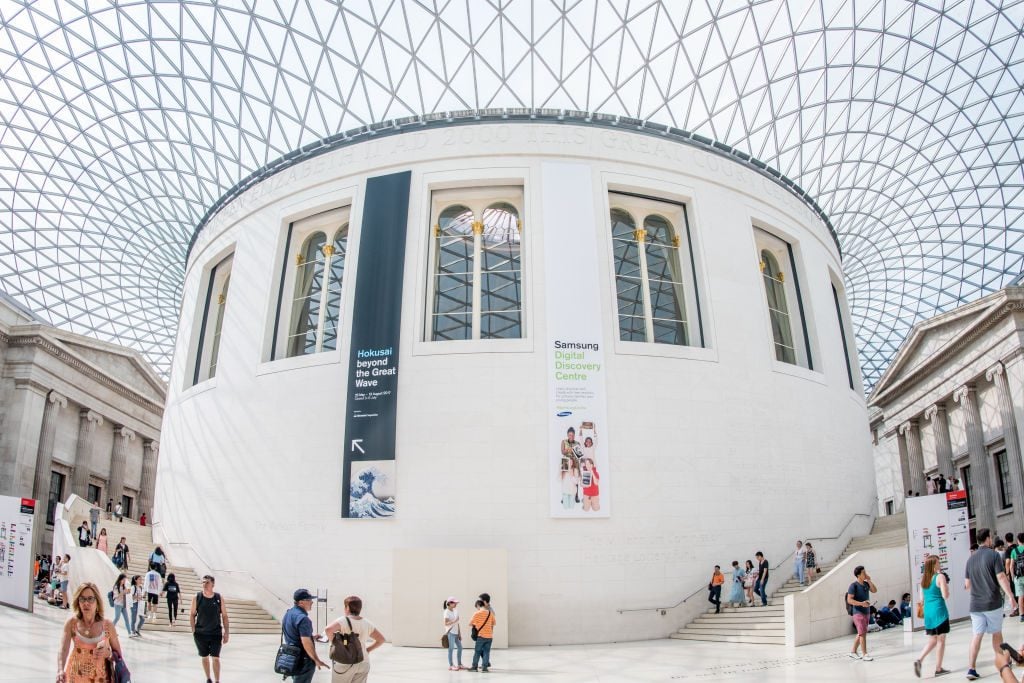Art World
What Defines a Museum? The Question Has Thrown the Art World’s Leading Professional Organization Into Turmoil
Disagreement about good governance has sparked a wave of resignations.

Disagreement about good governance has sparked a wave of resignations.

This year has been one of reckoning for museums, as they face unprecedented economic hardship as well as pressure to improve their treatment of workers and to diversify their programming and staffs.
In the less visible and bureaucratic realm of inter-museum politics, the situation has been no less vexed. A dispute within the International Council of Museums (ICOM), the Paris-based body that represents and promotes museums worldwide, broke out last year over how to update the definition of “museum.” Now, that debate has boiled over: In recent months, several members on the committee working to shape the definition have resigned, along with ICOM’s president and members of the executive board. Some members openly expressed their shock at the “unraveling” of what seemed to be a level-headed organization.
The debate roiling the organization is not divorced from the tensions facing individual institutions. Last year, the organization set out to update the definition of “museum” from the one that had been standing since 2007, which emphasized the acquisition and conservation of objects and the communication of cultural heritage “for the purposes of education, study, and enjoyment.” Many felt it was time for an update to bring the concept into the 21st century and better reflect cultural institutions’ role in facilitating social progress.
An open call for a new definition garnered 269 proposals, which a task force spent months distilling into five distinct proposals. With the executive board, the group settled on one to put forward at the annual ICOM general assembly in Kyoto last year, which hosted 4,500 members from 120 countries. But amid an internal dispute, the vote on the definition turned into a vote to postpone a decision. Little seems to have been resolved since then.

The Metropolitan Museum of Art in April 2020. Photo: Christina Horsten/picture alliance via Getty Images.
The proposed new definition that sparked outcry from certain factions used terms like “democratizing,” “participatory,” and “polyphonic spaces” to describe museums, calling them sites that promote equality, justice, and the planet’s well-being. Specific mention of the museum’s role in education was avoided, while terms like “inclusive” were added in. For some members of ICOM, the new 99-word definition seemed just too woke, so it never went to a vote.
Fast forward to this July, when a group of former ICOM members who have resigned in recent months shared an open letter to shed some light on exactly what had happened behind closed doors. George Abungu, Margaret Anderson, Jette Sandahl, and W. Richard West, Jr., who were all part of the embattled museum definition task force, reflected on the difficulty of shaping this new terminology. The standing committee cited a lack of “governance” at ICOM and little solidarity from the executive board.
They wrote that during the final stages of the committee’s selection process for the new definition, “a regrettable and unfortunate departure from sound institutional process” occurred. The executive board that was supposed to stand by the new definition, which had been put forward by the standing committee and pre-approved for a vote by the general assembly in Kyoto last September, had a “derailment.” The executive board went “silent,” according to the standing committee, leaving its members to fend for themselves in front of the entire ICOM community.
The major point of contention was whether museums should have social or political responsibilities, which alarmed traditionalist-conservatives within ICOM.

of the British Museum. Photo by Edwin Remsberg/VWPics/Universal Images Group via Getty Images.
By now, three ICOM executive board members, the chair of the committee, Jette Sandahl, and five other committee members have resigned, in addition to the ICOM president Suay Aksoy, who left her post in late June. (She has been replaced by Alberto Garlandini.) The Museums Association reports that in her resignation letter, the former president cited a “lack of solidarity” from ICOM director-general Peter Keller as one reason for her departure.
Léontine Meijer-van Mensch, who was one of the executive board members to resign this June, wrote in her own open letter that she could not stand by the “serious lobbying, with unfair back-alley political games, and not being transparent.”
In the standing committee’s co-written letter, its head, Jette Sandahl, and the other former members similarly cited “lobbying” over the proceedings and the definition as being driven by “an alliance of mainly European committees.” Indeed, a group of 24 nations including France, Italy, Spain, Germany, and Russia had pushed to postpone the vote.
“The economic, cultural, and social conditions and traditions under which museums work are vastly different, as are their obligations,” the former standing committee members wrote in their July letter. “But reducing these values, or dismissing them because they are ‘fashionable,’ ‘too political,’ or ‘divisive’ essentially ignores much meaningful discourse regarding 21st-century museum definitions and museum practice.”
The string of resignations has alarmed national members of ICOM, including Germany. Its president Beate Reifenscheid issued a public response last month to Aksoy’s sudden departure, expressing “great surprise.” She too cited a hope that “structural problems,” “information deficits,” and “internal conflicts” would be dealt with.
Though the situation remains wooly, ICOM’s brand new president, Garlandini, says he aims to bring some transparency to the large organization. In a recent interview with the New York Times, he said he is hopeful that ICOM “will positively highlight what unites us in a new definition.”
Amid a rapidly changing world, where museums have become key political battlegrounds for justice and change, the stakes are high. The standing committee says ICOM risks abdicating its authority if it does not come out on the right side of the debate. “If it continues to resist, let alone fails to move to embrace, the range of important and defining issues confronting museums and their future in the 21st century,” they wrote, “the importance of ICOM, regrettably, will be diminished and its impact and relevance at best marginal.”